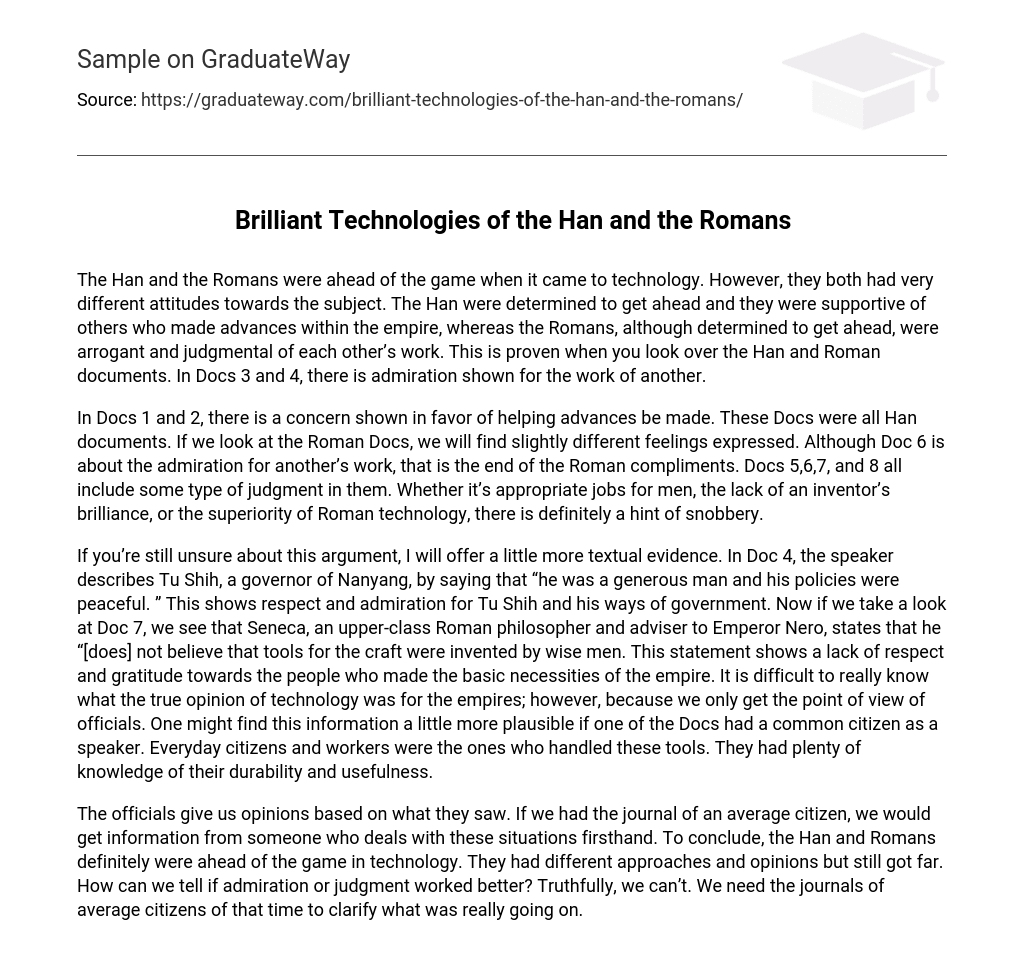The Han and the Romans were ahead of the game when it came to technology. However, they both had very different attitudes towards the subject. The Han were determined to get ahead and they were supportive of others who made advances within the empire, whereas the Romans, although determined to get ahead, were arrogant and judgmental of each other’s work. This is proven when you look over the Han and Roman documents. In Docs 3 and 4, there is admiration shown for the work of another.
In Docs 1 and 2, there is a concern shown in favor of helping advances be made. These Docs were all Han documents. If we look at the Roman Docs, we will find slightly different feelings expressed. Although Doc 6 is about the admiration for another’s work, that is the end of the Roman compliments. Docs 5,6,7, and 8 all include some type of judgment in them. Whether it’s appropriate jobs for men, the lack of an inventor’s brilliance, or the superiority of Roman technology, there is definitely a hint of snobbery.
If you’re still unsure about this argument, I will offer a little more textual evidence. In Doc 4, the speaker describes Tu Shih, a governor of Nanyang, by saying that “he was a generous man and his policies were peaceful. ” This shows respect and admiration for Tu Shih and his ways of government. Now if we take a look at Doc 7, we see that Seneca, an upper-class Roman philosopher and adviser to Emperor Nero, states that he “[does] not believe that tools for the craft were invented by wise men. This statement shows a lack of respect and gratitude towards the people who made the basic necessities of the empire. It is difficult to really know what the true opinion of technology was for the empires; however, because we only get the point of view of officials. One might find this information a little more plausible if one of the Docs had a common citizen as a speaker. Everyday citizens and workers were the ones who handled these tools. They had plenty of knowledge of their durability and usefulness.
The officials give us opinions based on what they saw. If we had the journal of an average citizen, we would get information from someone who deals with these situations firsthand. To conclude, the Han and Romans definitely were ahead of the game in technology. They had different approaches and opinions but still got far. How can we tell if admiration or judgment worked better? Truthfully, we can’t. We need the journals of average citizens of that time to clarify what was really going on.





